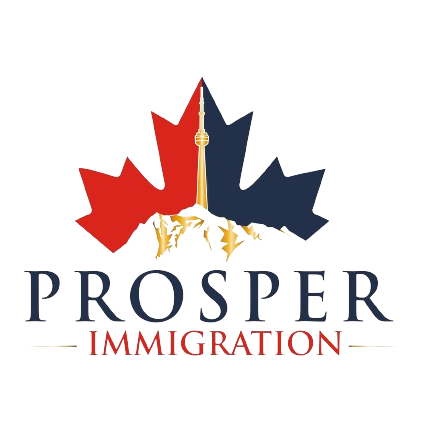Rural and Northern Immigration Pilot in Canada
In order to attract and keep foreign workers in Ontario, Western Canada, and the three territories, the Canadian government collaborates with small and isolated towns through the Rural and Northern Immigration Pilot.
Communities that Participate in RNIP
The Rural and Northern Immigration Pilot (RNIP) is a community-driven initiative, thus participating towns take the lead in luring new immigrants and matching them with available jobs in the area, creating a welcome neighbourhood, and establishing connections between newcomers and existing residents of the neighbourhood and local settlement services. The pilot is being conducted in the eleven communities listed below:
- North Bay, Ontario
- Sudbury, Ontario
- Timmins, Ontario
- Sault Ste. Marie, Ontario
- Thunder Bay, Ontario
- Brandon, Manitoba
- Altona/Rhineland, Manitoba
- Moose Jaw, Saskatchewan
- Claresholm, Alberta
- Vernon, British Columbia
- West Kootenay, British Columbia

The following requirements must be met by the community to be eligible to take part in the pilot:
- Be situated in Alberta, British Columbia, Manitoba, the Northwest Territories, Nunavut, Ontario, Saskatchewan, or Yukon;
- Have job opportunities;
- Have an economic development plan;
- Have a population of at least 50,000 and be at least 75 kilometres from the centre of a Census Metropolitan Area;
- Have a population of up to 200,000 and be considered remote from other larger cities;
- Possess a neighbourhood business improvement group that can oversee the pilot programme in your area;
- Possess the ability to integrate newcomers into the neighbourhood by having or creating:
- Connections to regional or local immigrant-serving groups;
- Chances to develop connections between newcomers and seasoned residents of the neighbourhood, as through networking or mentorship;
- Accessibility to essential services including education, housing, transportation, and healthcare
How to Enter the Country Through the RNIP
Eligibility qualifications for applicants: Potential applicants must fulfil the following federal requirements as well as those set out by the participating community where they want to settle in order to be eligible for the RNIP.
Federal standards include:
- Possess a referral from one of the authorised communities
- Should have three years’ worth of nonstop job experience (a minimum of 1,560 hours) or
- Possess a degree from a post-secondary school in the local community that was sponsored by public funds.
- Have a legitimate offer of employment in one of the approved localities
- Satisfy the language requirement for the noc job’s required level/type of skills.
- Own enough money to be able to move into the area and support their family
- Aspire to settle in the locality itself
Based on the following, the community will propose the candidate:
- Want to reside in the targeted community
- Employment offer and the economic requirements of the neighbourhood
- Working knowledge and abilities
- Links to the neighbourhood
- An established community economic development group is in charge of making suggestions.
Work Experience: Candidates that qualify must have these criteria fulfilled –
- A minimum of 1,560 hours (one year) of recent, compensated job experience;
- Job experience can be with several employers, but it must be in a single profession.
- You can either gain the job experience inside or outside of Canada.
- Regardless of job gaps, the three years prior to the application can be used to accrue the work experience.
- Experience working for yourself is ineligible
Candidates must have completed the lead statement activities in addition to the majority of the primary responsibilities and all necessary duties stated in the National Occupational Classification (NOC) for their profession.
Please be aware that overseas students who are recent graduates may be excluded from the work experience requirement:
- From a full-time master’s programme or above, or
- From a post-secondary programme that lasted at least two years.
Education: Candidates should possess –
- A high school certificate from Canada or its international equivalent;
- A report from an authorised body known as an Educational Credential Assessment (ECA) must attest to the equivalent status of diplomas received outside of Canada.
- When applying, the ECA report must be no older than five years.
The following qualifications must be met in order for graduates of a post-secondary programme in the community that is recommending them to be excluded from the work experience requirement:
- A two-year or longer post-secondary programme degree, diploma, certificate, trade, or apprenticeship, and:
- Were enrolled full-time throughout the entire two or more years.
- Before submitting an application for permanent residency, within 18 months of obtaining the certification
- Were local for at least 16 months throughout the previous 24 months of research
Or
- A phd or master’s degree, and
- Were enrolled full-time for the duration of the degree
- Before submitting an application for permanent residency, within 18 months of obtaining the certification
- Were residents of the area throughout the duration of the degree
Career Offer
A real full-time, permanent employment offer in one of the participating towns must be presented by prospective candidates. The pay must be at least as much as the minimum wage indicated in the Canada Job Bank for that NOC, and the candidates’ prior experience must show that they are capable of carrying out the job’s responsibilities.
- A real employment offer, according to the Canadian government, is one that:
- Must satisfy the employer’s requirements.
- In order to accept the offer, the employer must be actively engaged in that business.
- The offer’s conditions must be met by the employer.
- The employer must have previously complied with all applicable employment laws and regulations.
The employment offer must also be at the same skill level, or one skill level higher or lower than the NOC that most closely matches the candidate’s work experience. However, NOC-rated skill level D candidates must also have a job offer in the same field.
Language prerequisites: The required NOC skill type or level for the candidate’s employment offer determines the minimal language requirement. The following are the prerequisites for each NOC skill category and level.
- Canadian Language Benchmark is referred to as “CLB.”
- NOC 0 and A: A minimum CLB 6 in language is necessary.
- NOC B: A CLB 5 in language proficiency is necessary.
- NOC C and D: A CLB 4 in language proficiency is necessary.
Funds:
Candidates must show that they have enough money to maintain themselves and their family after moving to Canada. They cannot borrow money from anyone; they must have these resources on hand. The following records are acceptable as evidence of funds:
Financial statement
- Documentation demonstrating investments in real estate or other assets (such as stocks, bonds, debentures, treasury bills, etc.)
- Papers (such as banker’s draughts, checks, traveler’s checks, or money orders) that promise to pay you a specific sum of money
- The requirement for settlement funds does not apply to anyone who are lawfully employed in Canada at the time of application.



